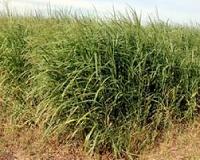 |
Brussels, Belgium (SPX) Jul 12, 2010 A key tool is the JRC's methodology to quantify changes to the amount of carbon in soils and biomass when land use changes as a result of biofuels production. This is an important factor in the sustainability assessment. The methodology follows the Intergovernmental Panel on Climate Change (IPCC) guidelines for national greenhouse gas inventories and is supported by comprehensive global data collected by the JRC. The methodology was the basis for the Commission decision on the guidelines for the calculation of land carbon stocks. The new system, adopted in June by the European Commission, encourages industry, governments and NGOs to set up voluntary certification schemes for all types of biofuels. It will help to ensure that all biofuels (including those imported into the EU) are sustainable and deliver high greenhouse gas (GHG) savings, at least 35% when compared to fossil fuels. It also excludes specific land categories, such as primary forests, wetlands, peatlands and areas with high diversity. The JRC provided extensive technical and scientific support to the Commission Directive and Communications. This included designing practical measures and procedures for calculating the GHG emissions of various options for producing biofuels and bioliquids. The accompanying global data layers on climate regions and soil types have also been developed by the JRC, following IPCC specifications. The standard methodology and the carbon stock coefficients together with the data layers will enable economic operators to determine what changes in land carbon stocks might arise from the conversion of land for biofuels production. The calculation of default values for GHG savings is a complex procedure, which must take into consideration a number of parameters such as the type of fertiliser or pesticide used when growing biofuels, the fuel used by agricultural vehicles (tractors) or the distance to the processing plant and users. Other JRC contributions included: Calculating the typical and default values for GHG savings (Annex V of the Directive 2009/28/EC "on the promotion of the use of energy from renewable sources"); Adapting and updating the list of pathways to technical and scientific progresses; Selecting the most scientifically appropriate data sources; Providing technical answers and support to third parties on the assessment of GHG emissions and on the values specified in the Directive.
Background Sustainable biofuel certificates: The Commission encourages industry, governments and NGOs to set up 'voluntary schemes' to certify biofuel sustainability and explains the standards these must meet to gain EU recognition. One of the main criteria is that they have independent auditors which check the whole production chain, from the farmer and the mill, via the trader, to the fuel supplier who delivers petrol or diesel to the filling station. The Communication sets standards requiring this auditing to be reliable and fraud-resistant. Protecting untouched nature: The Communication establishes that biofuels should not be made from raw materials from tropical forests or recently deforested areas, drained peatland, wetland or highly biodiverse areas. It also provides guidelines for the assessment, making clear for instance that the conversion of a forest to a palm oil plantation would fall foul of the sustainability requirements. The promotion of biofuels with high greenhouse gas savings: The Communication reiterates that EU countries have to meet binding national targets for renewable energy and that only those biofuels with high greenhouse gas savings count towards those targets. It also explains how to calculate those savings. Biofuels must deliver greenhouse gas savings of at least 35% compared to fossil fuels, rising to 50% in 2017 and to 60%, for biofuels from new plants, in 2018.
Share This Article With Planet Earth
Related Links European Commission Joint Research Centre Bio Fuel Technology and Application News
 Yield Projections For Switchgrass As A Biofuel Crop
Yield Projections For Switchgrass As A Biofuel CropMadison WI (SPX) Jul 12, 2010 While scientists have conducted numerous studies on production of biomass from biofuel crops, such as switchgrass, no one has yet compiled this information to evaluate the response of biomass yield to soils, climate, and crop management across the United States. A team of researchers from Oak Ridge National Laboratory and Dartmouth College published just such a study in the July-August 201 ... read more |
|
| The content herein, unless otherwise known to be public domain, are Copyright 1995-2010 - SpaceDaily. AFP and UPI Wire Stories are copyright Agence France-Presse and United Press International. ESA Portal Reports are copyright European Space Agency. All NASA sourced material is public domain. Additional copyrights may apply in whole or part to other bona fide parties. Advertising does not imply endorsement,agreement or approval of any opinions, statements or information provided by SpaceDaily on any Web page published or hosted by SpaceDaily. Privacy Statement |